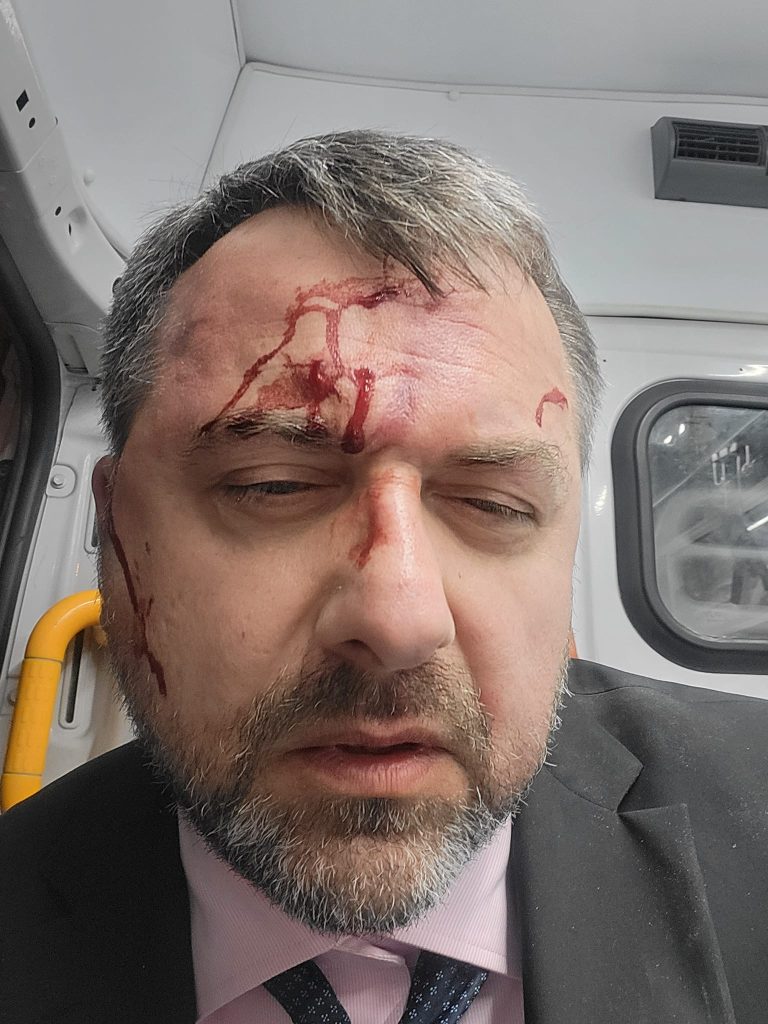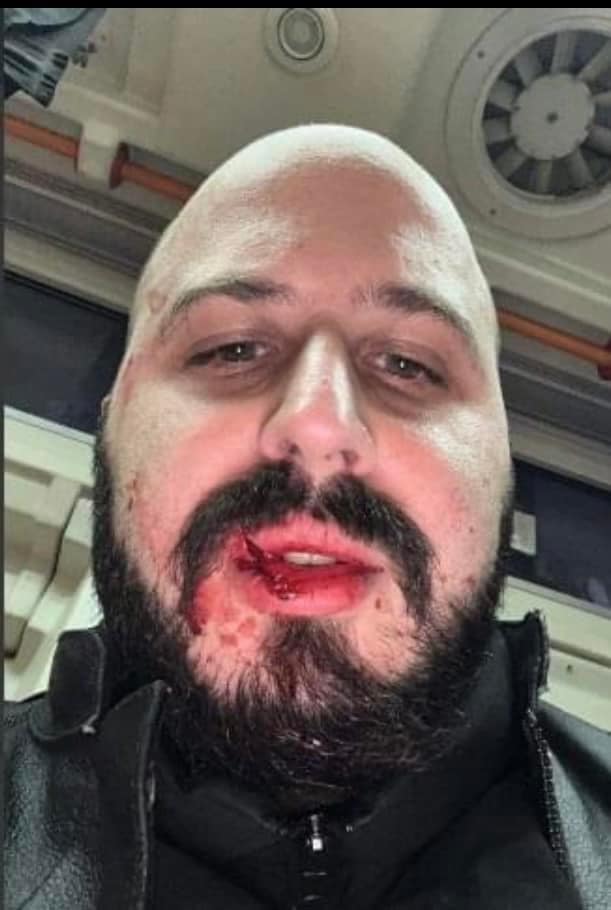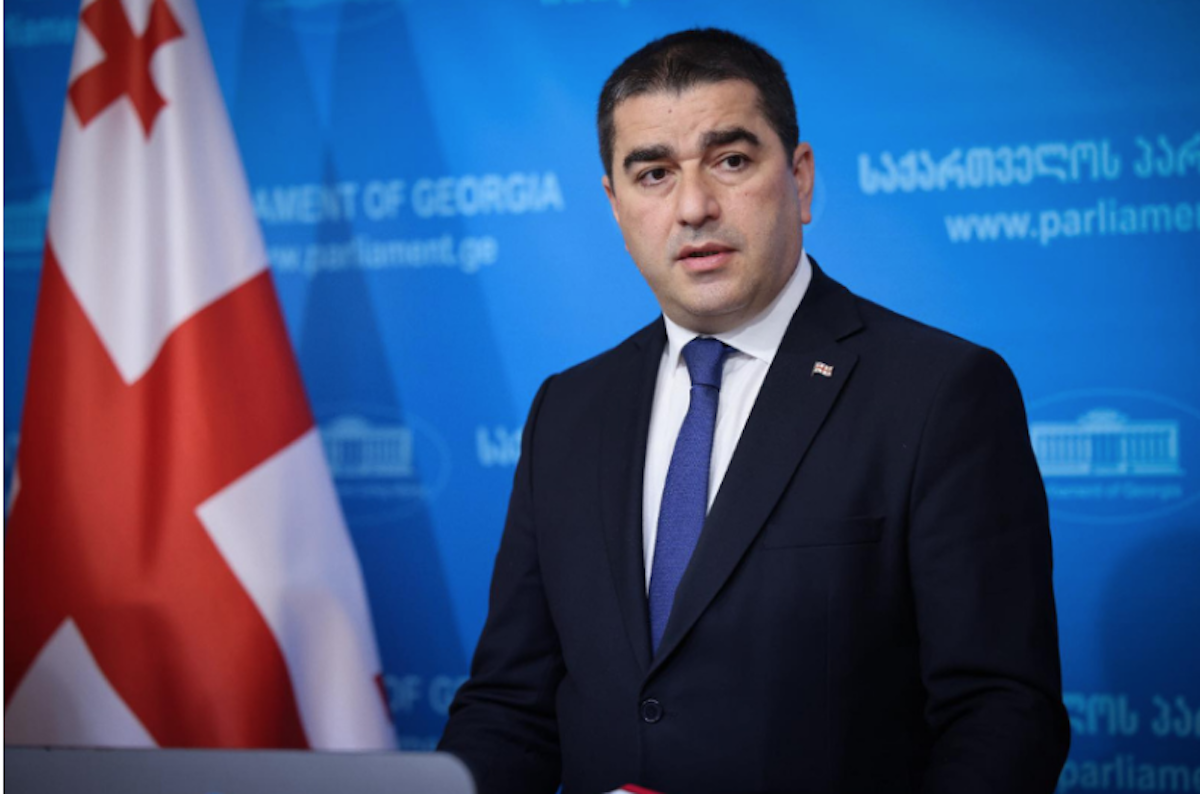In Georgia, activists against the "foreign agents" bill are being attacked right outside their homes
Opponents of Georgia’s foreign agents’ bill beaten
In Georgia, opponents of the foreign agents’ bill are being attacked.
Attacks and beatings of activists protesting against the foreign agents’ bill and prominent figures publicly supporting these protests and opposing the ruling party “Georgian Dream” continue in Georgia.
Late in the evening on May 8 in Tbilisi, at least three activists were severely beaten by unknown groups.
One of them is Dimitri Chikovani, a member of the secretariat of the opposition party “National Movement” (founded by former president Mikheil Saakashvili). Chikovani was attacked near the entrance of a multi-story building in Sololaki, central Tbilisi, where he lives.

Recording from surveillance cameras has been released, showing Chikovani being attacked by five people. Their faces are not visible in the video.
The politician was transferred to the Khechinashvili Clinic. His condition is assessed as “critical,” with a traumatic brain injury.
“This is the end of the regime, its final breaths. They can’t intimidate us. ‘Georgian Dream’ will end its existence, the Russian regime cannot exist in our country,” Chikovani stated on the “Pirveli” channel.
On the same evening, unknown individuals attacked Gia Japaridze, an expert in international relations. He is the brother of Zurab Japaridze, the leader of the opposition party “Girchi – More Freedom,” and is also actively opposing the foreign agents bill.

Zurab Japaridze, a politician, wrote on Facebook: “Several people waited for my brother at the entrance to his house and subjected him to physical assault.”
Gia Japaridze himself, at the entrance to the clinic, gave a brief comment to journalists:
“What is happening in the whole country has happened to me: I was attacked by pro-Russian individuals. I distinctly remember two, maybe three or more attackers. They met me near my house. They started beating me, many with sticks, shouting why I oppose the ‘Russian law‘,” Gia Japaridze recounted.
Japaridze remains in the hospital for now. “His overall condition is stable, he is under observation, and tests are being conducted. He has a traumatic brain injury, and you can see how severe the wound on his head is,” commented the attending physician at the clinic.
On the same night of May 8, another active opponent of the foreign agents bill, Lasha Gvinianidze, was beaten on the street. He is one of the organizers of the March of Europe planned for May 11 in Tbilisi.
During the attack, Gvinianidze was with a friend who managed to capture a fragment of the assault on video. The activist had his split lower lip stitched up.

“This is related to my political activity. Before this, they called my 72-year-old father and threatened him, and in the evening, they followed through on the threat. Although we all thought it would remain at the level of phone statements,” Lasha Gvinianidze told the “Pirveli” channel.
These are not the first instances of attacks on politicians and critically-minded citizens in recent days.
On May 7, an unknown assailant attacked the Executive Director of the Institute for Development of Freedom of Information (IDFI), Giorgi Kldiashvili, and the filming crew of the “Formula” channel. The attack occurred midday in downtown Tbilisi, right in front of the Swedish Embassy.
On May 5, in Lanchkhuti, a teacher and recipient of international and national awards, Lado Apkhazava, was attacked in the stairwell of his own home. Apkhazava actively participates in protests against the foreign agent law. He was with his son during the attack.
On May 1, during a rally, the leader of the “National Movement,” Levan Khabeishvili, was arrested and brutally beaten by special forces.

Hundreds of activists and journalists are receiving threatening calls. In addition to physical violence, in recent days, hundreds of opponents of the foreign agents bill have been subjected to psychological violence and threats. They receive calls, are verbally abused, and threatened, with the callers claiming to know their home addresses. Editors at JAMnews have also received such calls.
On May 8, the Chairman of the Georgian Parliament, Shalva Papuashvili, announced that the government is creating a special database to “collect information on individuals involved in blackmail.”
This initiative essentially implies the creation of a registry of critically-minded individuals, say representatives of civil society.
On May 11, European Day, a march against the “Russian foreign agent law” is planned in Tbilisi and other cities. Participants will gather simultaneously in several districts of the city and march in columns towards the parliament building.
The ruling party, “Georgian Dream,” first initiated the “Foreign Agents” bill a year ago, in March 2023. The parliament passed it on the first reading, but due to mass protests by citizens and sharp criticism from the West, the government withdrew the bill.
On April 3, 2024, it was announced that the ruling party had decided to reintroduce the bill to parliament. The content remained the same, but this time the project was called the “Transparency of Foreign Influence” bill.
The reintroduction of the bill was accompanied by even larger protests than in 2023. About 100,000 protesters take to the streets every day.
Western partners of Georgia sharply criticize the bill and openly warn the government that its adoption will create serious problems for Georgia’s integration with Europe.
By this point, the bill has been passed in two readings. On May 17, parliament is set to pass it in the third and final reading.





















